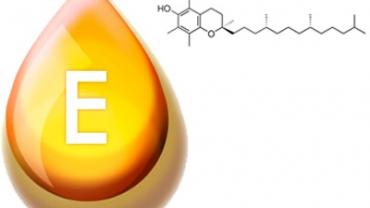
New research published just two days ago in the American Journal of Clinical Nutrition demonstrated that approximately one-third of Americans who have metabolic syndrome do not absorb dietary vitamin E as effectively as healthy individuals. Vitamin E is a potent antioxidant that is essential to overall health.
It is estimated that 35% of Americans have metabolic syndrome which is characterized by having at least three of the following traits: excess abdominal fat elevated blood pressure low HDL cholesterol elevated fasting blood glucose and/or high triglycerides.
The researchers had expected to see a lower bioavailability of vitamin E in individuals with metabolic syndrome; however this was never studied before so there were no specific recommendations for this population. Since this study revealed that at least one third of Americans have higher vitamin E requirements than healthy individuals vitamin E can be viewed as a conditionally essential nutrient for patients with metabolic syndrome.
Since obesity is a characteristic of metabolic syndrome many of these individuals try various diets in an attempt to lose weight often by cutting fats. This exacerbates the problem since many healthy fat-containing foods are the best dietary sources of vitamin E such as almonds sunflower seeds and avocados. These patients should be given proper dietary recommendations that will not hinder their vitamin E intake.
In addition previous research has shown that only about 10% of a vitamin E supplement gets absorbed if it is consumed without any fat. The bioavailability is significantly higher when taken with a fat-containing meal or taken in a softgel so it can be carried in with a fat (i.e. medium chain triglycerides).
Serious side effects caused by vitamin E deficiency are rare but a significant percentage of the population have suboptimal levels which can impact their overall health and contribute to chronic disease states.
Researchers suspect that individuals with metabolic syndrome may have an impairment of vitamin E absorption at the small intestine an inability for vitamin E to get out of the liver or possibly a combination of the two. Many labs can assess fat-soluble vitamins and this may be a useful tool to consider for helping patients with metabolic syndrome.
By Michael Jurgelewicz DC DACBN DCBCN